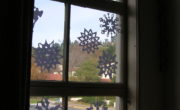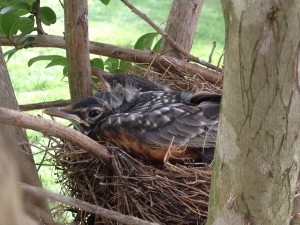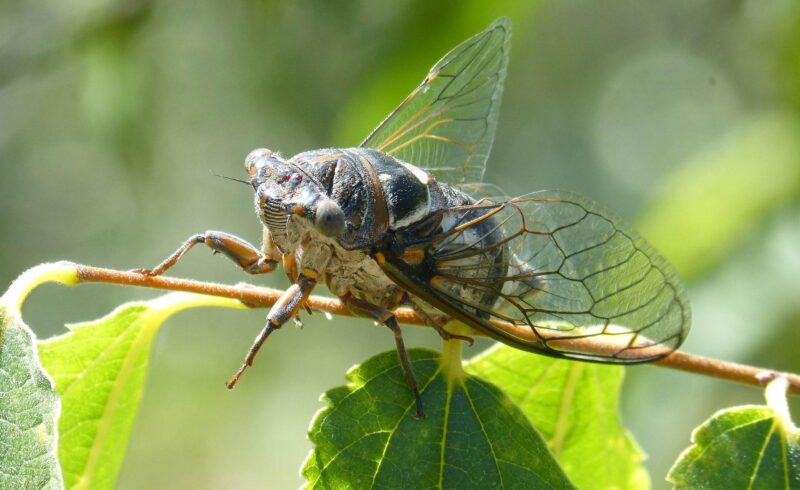
Here in the southeastern United States, we know it’s summer when the cicadas start to hum. Hot humid evenings with the loud buzzing take many people back to childhood summers swimming at the pool and evening dog walks. In my own life, I never realized that the sounds of cicadas meant summer to me until I lived in other parts of the U.S. where the large broods of periodical cicadas aren’t found.
Take a walk with me, and let’s learn a few things about cicadas. Have you ever seen small holes the size of your thumb in your yard or flower beds? Cicadas live underground and emerge from these holes. Some come out every year; these are called annual cicadas. Other kinds take either thirteen or seventeen years to emerge. These groups of cicadas are called by name. Here in my area, Brood X emerged in 2021 and was often so loud that you couldn’t hear yourself talking when you were outside! We could even hear them in the car with the windows shut as we were driving in heavily forested areas.
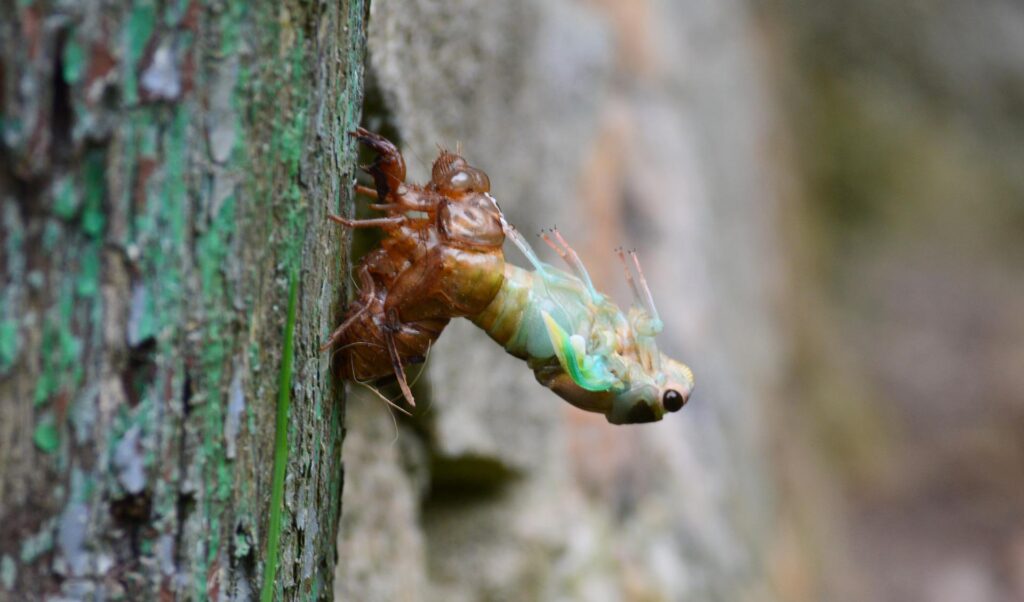
The sounds that we hear are the mating call of the male cicada. Coming out in broods ensures that many cicadas will survive to mate and lay eggs. Females cut small grooves on tree twigs and deposit their eggs. The eggs hatch, and the baby ant-like cicadas fall to the ground and burrow in for the year or longer. They feed on fluids from the roots of plants and trees.
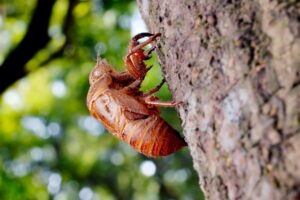 Cicadas leave their empty shells on the sides of trees, and while these shells may look scary, cicadas aren’t harmful to people, animals, or vegetation. In fact, they help as nature’s soil aerators. Although, I would still discourage Rover from eating too many and getting an upset stomach.
Cicadas leave their empty shells on the sides of trees, and while these shells may look scary, cicadas aren’t harmful to people, animals, or vegetation. In fact, they help as nature’s soil aerators. Although, I would still discourage Rover from eating too many and getting an upset stomach.
Thanks for walking with me. If you have never heard a cicada’s call, check out the videos below:
What are your sounds of summer? Do you live in areas with different sounds? Share in the comments, we’d love to learn more about it!
To Learn More:
Check out these great sites to learn more about cicadas.
“14 Fun Facts About Cicadas.” Smithsonian Magazine.
“Periodical Cicadas.” National Wildlife Federation.
“How Do Cicadas Know When to Emerge from the Ground?” Entomology Today







